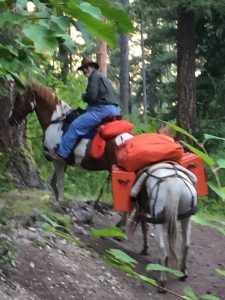
By Norman Lee, Montana
All my horses are rescued. We jokingly call them the geriatric herd because they range in age from twenty-three to twenty-nine years old. Currently we have an Arabian-Belgian, two black-and-white Paint horses, and a part-Morgan horse.
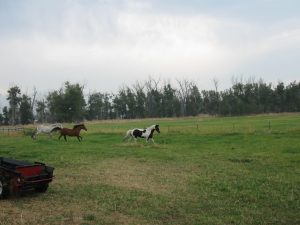
One of my rescued horses had worked in many rodeos. It’s taken a while for the former rodeo horse to relax and say to himself, “OK, we’re just going for a little ride. I don’t have to get all wound up. We won’t have to rope a cow. We can just enjoy a hike in the woods.”
Working with animals and the HU, a sacred sound that flows through all creation, has been such a gift. Anytime the animals get anxious about something, or we are in a tight spot with them, I sing HU, and the situation calms down.
Animals understand the HU. I notice a difference in a horse’s body when I start singing it. I can feel the tenseness go out of him. Also, a horse’s ears are a telling sign. If they’re flopping back and forth or turned back toward the rider, then the horse is listening to you. If the horse is relaxed, the ears flop back and forth. If the horse is excited, the ears point in the direction of whatever he’s excited about.
While I start singing HU, a horse’s ears veer back in my direction because that’s where his attention is. If I’m riding the horse, I feel his body start to relax. This response is something deeper than the horse’s muscles loosening up. I get an inner image of the horse becoming calmer.
Singing HU to Pack Horses
 |
When I train pack horses and start working with them, I sing HU, and they begin to recognize the sound. The HU helps us to avoid problems. If I know a dangerous situation is coming up, I prepare the horses. For example, we might be crossing a deep river, and I sing HU before we encounter trouble. |
| Pack horses carry our supplies when we go wilderness camping. They tote tents, sleeping bags, cooking gear, and extra food for the horses and people. Mountain trails have a lot of wildlife. Occasionally we have seen grizzly bears. They cannot be hunted in Montana, so their population is increasing. When grizzlies are nearby, we simply sing HU out loud, and it reduces the horses’ anxiety. The bears seem to know we mean them no harm. | 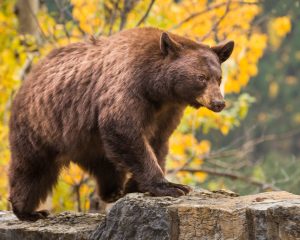 |
When I take a string of three or four pack horses tied together, with one behind the other, a lead rope connects the halter of the horse being led to the pack saddle of the horse in front of it. Twice, while leading with pack horses in a line, one horse got a foot over a lead rope and kept trying to walk. I turned around, saw the horse in trouble, and began singing HU. This helped the horse stay safe while I untangled the lead rope.
One time my nine-year-old niece, “Mary,” visited our ranch. I took her into the Bob Marshall Wilderness, in western Montana, on an overnight horse-packing trip. We were crossing a swampy area. The horses don’t like swamps because they end up sinking into them. Mary’s saddle slipped underneath the horse, and she was hung up there. I stopped my horse and started to HU. Mary’s horse did not bolt or even move a muscle until I could get back there and lift Mary and the saddle upright again.
A Horse’s Personality
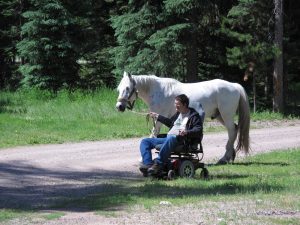 Horses have all sorts of different personalities, and some can be dominant. By constantly working with them, I get to know their idiosyncrasies. One horse waits outside the barn until everybody else has gone in. Another horse has to be the first one in the barn. We start to get an outer and inner spiritual connection. I understand what’s important to them, and they know what to expect from me.
Horses have all sorts of different personalities, and some can be dominant. By constantly working with them, I get to know their idiosyncrasies. One horse waits outside the barn until everybody else has gone in. Another horse has to be the first one in the barn. We start to get an outer and inner spiritual connection. I understand what’s important to them, and they know what to expect from me.
When you develop a relationship with an animal, it’s very similar to the type you would develop with someone in a group of people you are teaching. During the training of a pack horse, I recognize what position the horse wants and adapt to that horse’s needs. While riding a horse I look in a certain direction and have a mental image of where we’re going. The horse picks up on that image. Our communication builds a trusting connection between the horse and me.
Love for Animals
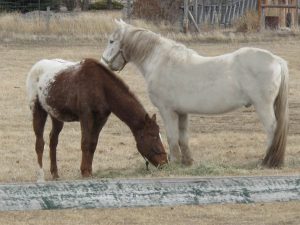 The love I feel for horses is expressed as an appreciation for what and who they are. I view them at the same level as another person. Animals are Souls too. I make connections with them in ways that are not servant–master relationships. I respect who they are and treat them as individuals. I ask, “What do I have to learn from you? What are you here to teach me?” They have taught me that when I respect them and show love, they reciprocate with respect and love.
The love I feel for horses is expressed as an appreciation for what and who they are. I view them at the same level as another person. Animals are Souls too. I make connections with them in ways that are not servant–master relationships. I respect who they are and treat them as individuals. I ask, “What do I have to learn from you? What are you here to teach me?” They have taught me that when I respect them and show love, they reciprocate with respect and love.
I love singing HU to horses as conscious beings and as Soul. I’m grateful for how they respond to the HU. The horses and I work together with inner communication, Soul to Soul.
—Photos by Norman Lee and Justine Pearson
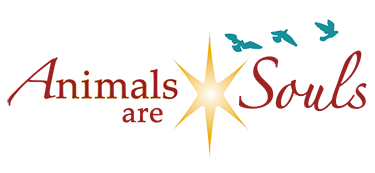
Thank you, Norman. I’ve sung HU with my horses many times. It has helped both horse and human through many sticky situations and given us both courage and calm. I view horses, not as servants but as co-workers and when I sing HU with them, we are truly working Soul to Soul.
Truly HU connects all life. Interesting stories.
I enjoyed this article immensely as I recently returned from the Calgary Stampede festivities. Seeing many horses in various competitions and others up close in “ horse haven “ gave me a greater appreciation of these majestic souls.
My husband is a farrier and ,when asked , I assist him with what I can.
We have worked with a few fearful horses. I sing Hu silently (as my husband is a non-Eckist) and it helps keep the horses calmer. we are able to work with them without as much drama and panic happening.
I am so grateful for the gift of the Hu and Eckankar.
Having used the Hu with both horses and dogs it is truly a universal gift.
Thank you for this comment, I have a coworker who is quitting to go to farrier school, I will pass along.
Lovely❤️ story. Thank you for sharing that wonderful experience. May the blessings be
Thanks, Norman, for helping me fill my spiritual saddle bag with some deeper insights about how the HU can be used with animals. Over the years I’ve interacted with the cats in my life in a respectful way, and they have been very responsive to the HU as well. It is a joy to share this path with Souls who occupy animal forms! Your narrative and photos were a pleasure to explore. Happy trails!